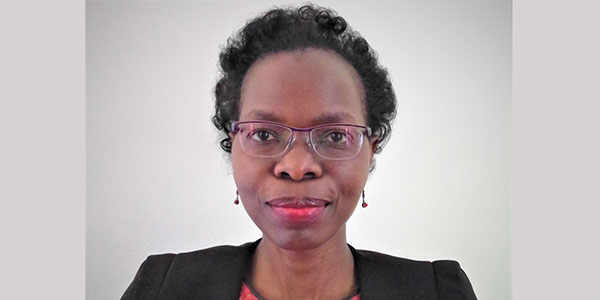Tackling how data from your Health App is used
- Wits University
New research project will explore ways to protect the personal health data of African app users.
Pamela Andanda, Professor in the School of Law and an expert in law and bioethics, is part of an international research team that will examine how to better regulate the collection and migration of health data of people in the global South in order to protect privacy and prevent exploitation of their personal information.
Digital health apps are increasingly popular in sub-Saharan Africa as a means of delivering health services. But a pilot project by the research team found that most of these health apps are owned and operated by foreign companies, and that health data out-migration from these apps is inadequately regulated.
Annually, health data from over 40 million Africans is harvested by digital companies based in the global north, something which has been described as “digital colonialism.”
“Digital colonialism leads to structural inequalities and lack of oversight over the use of the collected data thus leaving less room for data subjects and contributors to determine how data can be used for their benefits,” says Andanda.

Through the research project titled There is no app for this! Regulating the migration of health apps in Sub-Saharan Africa, the team will tackle these pertinent issues.
The project is led by Professor Sharifah Sekalala of Warwick Law School, and consists of Professor Bitange Ndemo (University of Nairobi, Kenya) and Wits University’s Andanda. It has been been awarded €1.4 million (approx.. R24 million) under the Mobility – Global Medicine and Health Research programme, funded by the La Caixa Foundation (Spain), the Novo Nordisk Foundation (Denmark), the Volkswagen Foundation (Germany) and Wellcome (UK).
Focusing on Kenya, Uganda and South Africa, the project brings together a consortium of scholars and activists to examine how to construct regulatory solutions to the problem of health data migration in Africa.
The research will address three questions:
- How can the conceptual framework of digital health colonialism help us to understand and resist structural inequities of data migration?
- How can we co-create the design of apps to better address issues of privacy and data misuse, given the rapid rate of technological development?
- How can we update regulatory frameworks at the Pan-African level?
An important aspect of the work is the commitment to working with civil society organisations, app developers and traditional and non-traditional regulators. Together, the team will devise legal mechanisms to protect the health data of people in the global South by co-creating guidelines for data regulation, and testing their feasibility with app developers and other relevant stakeholders.
Professor Sekalala says: “The migration of people has long been a key policy issue for global health, but the global health stakes are also high for the migration of health data. The use of mobile health apps offers huge advantages for health in Africa, where health infrastructure and resources are often limited. However, the emergence and popular uptake of health apps also raise troubling questions: Where does data go? Who has access to it? And who profits from Africans’ health data, particularly once it leaves Africa?”
Professor Andanda who will lead the section which seeks to conceptualise legal and ethical issues that should be resolved to create core minimum standards for regulating the migration of health data in Sub-Saharan Africa says: “The co-creative approach, which we use in this project will go a long way in ensuring that the passive collection of personal data, through health apps, and data migration are properly regulated to respect human dignity.”
Professor Ndemo says: “The funding from Wellcome comes at the right time when there is a growing list of health hubs in Africa especially those that are building health wallets that will have a long-term effect on the people of Africa. The need to interrogate emerging concepts from the health apps is urgent now.”
Dr Peter Kilroy at Wellcome adds: “The rapid rate of technological development in recent years has had profound implications on the global collection and storage of health data. Working with stakeholders across sub-Saharan Africa, this innovative project will be critical in transforming our understanding of the global inequities associated with health data migration, helping to inform regulatory frameworks and promote equitable approaches.”
NOTES
“There is no app for this! Regulating the migration of health apps in Sub-Saharan Africa” (Grant ref: 0062255) is one of seven global health research projects awarded funding under the
Mobility-Global Medicine and Health Research call.
The call focuses on the opportunities, risks and possible solutions to the impact of increasing mobility on global health. It is co-ordinated jointly by the La Caixa Foundation (Spain), Novo Nordisk Fonden (Denmark), Wellcome (UK) and the Volkswagen Foundation (Germany). After funding 15 pilot studies, these foundations have now selected seven international and interdisciplinary projects to be recipients of 10.3 million euros in funding.

